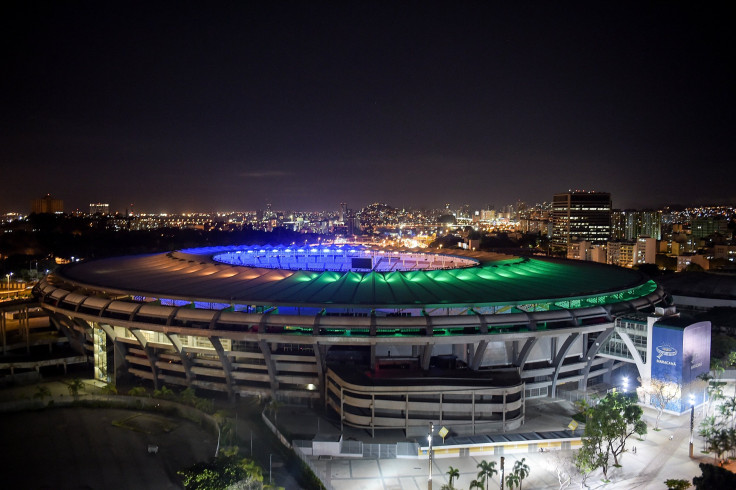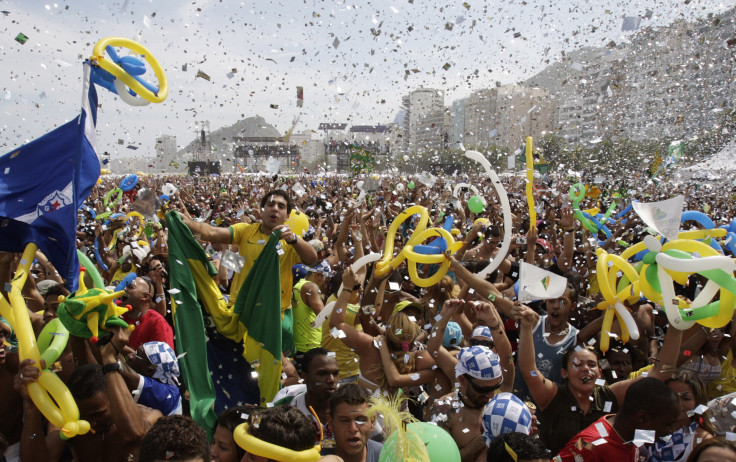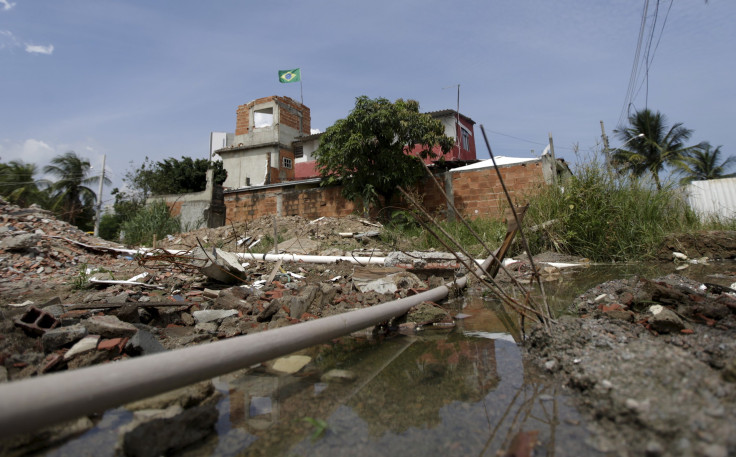Road To Rio: Brazil Olympics Sees Low Ticket Sales Amid Economic Downturn And Political Scandals

Ayrton Ribeiro de Souza is like the majority of Brazilians: He hasn’t bought tickets yet for the Olympic Games in Rio de Janeiro.
“It’s in August, and I live in Rio so I can decide a little later. I’m very interested in swimming, gymnastics, soccer and volleyball,” said Souza, 26, who works at a nonprofit. “I think it’s a cultural thing — we leave things for at least the last month.”
With less than five months before the first Olympic Games in South America, organizers say out of the 7.5 million available tickets, they have sold only half. The games are coming at a difficult moment for Brazil — its economy contracted by 3.8 percent in 2015, the Zika virus outbreak has dominated headlines and millions are protesting against President Dilma Rousseff amid a growing corruption scandal. The country’s burgeoning middle class faces a tough economic climate and while winning hosting rights was a morale booster in 2009, the impact of an economic recession is tempering enthusiasm for the games.
Brazilians’ lack of interest in buying tickets is unusual for a host country. Ahead of the Summer Games in London in 2012, soccer was the only sport that hadn’t sold out by February and by the end of June over 80 percent of tickets had been sold, the BBC reported. Over 75 percent of tickets to the London Games were sold to the British public. So far, Brazil’s woes come closest to mirroring the Summer Games in Athens in 2004, when less than 60 percent of tickets were sold before the start of the games.
The trickle of ticket sales reflects a shift in Brazil’s political and economic outlook. While thousands of Brazilians gathered on Rio’s famed Copacabana beach in 2009 to celebrate the city’s selection as the host of the 2016 Games, last week thousands came out to protest the multiple corruption and money-laundering scandals rocking the country’s political establishment.
Brazilian lawmakers recently started an impeachment process against Rousseff, accusing her of manipulating economic data to hide the true state of the country’s struggling economy. Separate from the impeachment scandal, former President Luiz Inácio Lula da Silva is under investigation for corruption linked to kickbacks from the state oil company Petrobras. Rousseff has stood by Lula, naming him as her chief of staff last week, which critics called a ploy to give him protection from prosecution.

“The problem is Brazil’s social life, economic life and political life has been paralyzed by this big investigation that is taking place into the scandals related to Petrobras ... this political drama is so overwhelming, so omnipresent, that Brazilians have not really taken the time or focus to reach back to think they are hosting the Olympic Games this year in August,” said Marcos Troyjo, director of the BRICLab at Columbia University in New York, which focuses on economic issues in Brazil, Russia, India and China, speaking from Rio.
Following a golden period of fast economic growth during the 2000s, Brazil’s unemployment rate grew from 6.8 percent in 2014 to approximately 9 percent in 2015, with the average monthly salary standing at $220. After an economic contraction of 3.8 percent in 2015, economists fear the country’s economy could contract by another 3 percent in 2016 as prices for goods continue rising.
“When the games were given to Brazil, there was an absolute mood of optimism all over Brazil. People thought it was Brazil’s turn, that Brazil was on the way to becoming a developed country ... the mood is quite different [now],” said Ricardo Camargo Mendes, a managing partner at Prospectiva, a policy consulting firm based in Brazil and Miami. “Brazil has been deeply affected by the fall in commodity prices worldwide, the slowdown in the Chinese economy and, of course, there are other reasons, mainly domestic issues.”
While most Olympic tickets for the international markets have been sold — including pricey opening ceremony ones going for over $1,000 — the International Olympic Committee said in early March that domestic tickets were now the priority. Electronic kiosks will be set up around Rio to help boost sales. The average ticket price, approximately $18, is affordable for most people, Souza said, and the IOC is expecting a rise in sales closer to the August kickoff.
“Brazilians, they do not buy tickets at such an early stage, as the British or the Germans. There is no concern at all,” said IOC President Thomas Bach at a press conference in early March, the Associated Press reported. “We had comparable figures before Athens and other Olympic Games.”

Despite the political and economic issues roiling Brazil, along with health concerns over the Zika virus, the city of Rio is expecting over 500,000 visitors for the games. Mayor Eduardo Paes has rescheduled school holidays in an attempt to limit traffic and said he could call for public holidays during the games.
“Will it [the political and economic situation] affect the Olympics? No, in no form,” said Michael Nagy, commercial director of the Rio Convention and Visitors Bureau, who has already bought tickets for multiple events including golf and tennis. “It’s going to be during the holiday season, people will come, it will be a success.”
But local tour guides have yet to see the boost they were expecting from the games. “I have really noticed not much interest,” said Marcio Guedes, a Rio native who has worked as a tour operator and guide for 15 years. “I haven’t been receiving a lot of emails requesting tours, or requesting prices of tours during the Olympics, and that kind of surprised me.”
Guedes decided he was not going to wait for his regular clientele base and instead will spend the Olympics as the exclusive guide for a television crew coming from New Zealand to cover events.
Fellow Rio tour guide Daniel Cabral said the excitement in Brazil and surrounding countries was much greater for the 2014 World Cup and expects some Brazilians outside of Rio will wait to see how the country’s economy is faring before making decisions to come see the games.
“People who need to come to Rio, who have to fly, book a hotel, it becomes an expensive trip and I think some of these people are canceling or waiting a bit longer to see where the economy goes in the next couple of months,” Cabral said.
Mendes, the policy consultant, said many Brazilians simply prefer to buy tickets at the last minute. “I haven’t purchased tickets yet, but I might,” he said.
© Copyright IBTimes 2024. All rights reserved.























